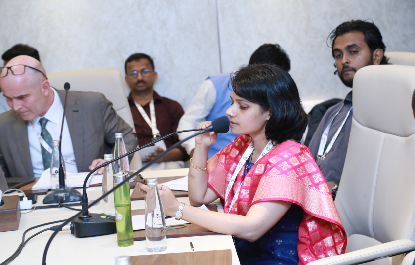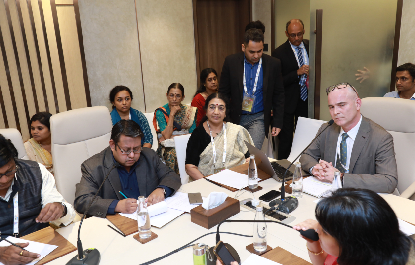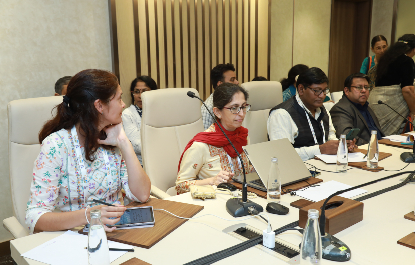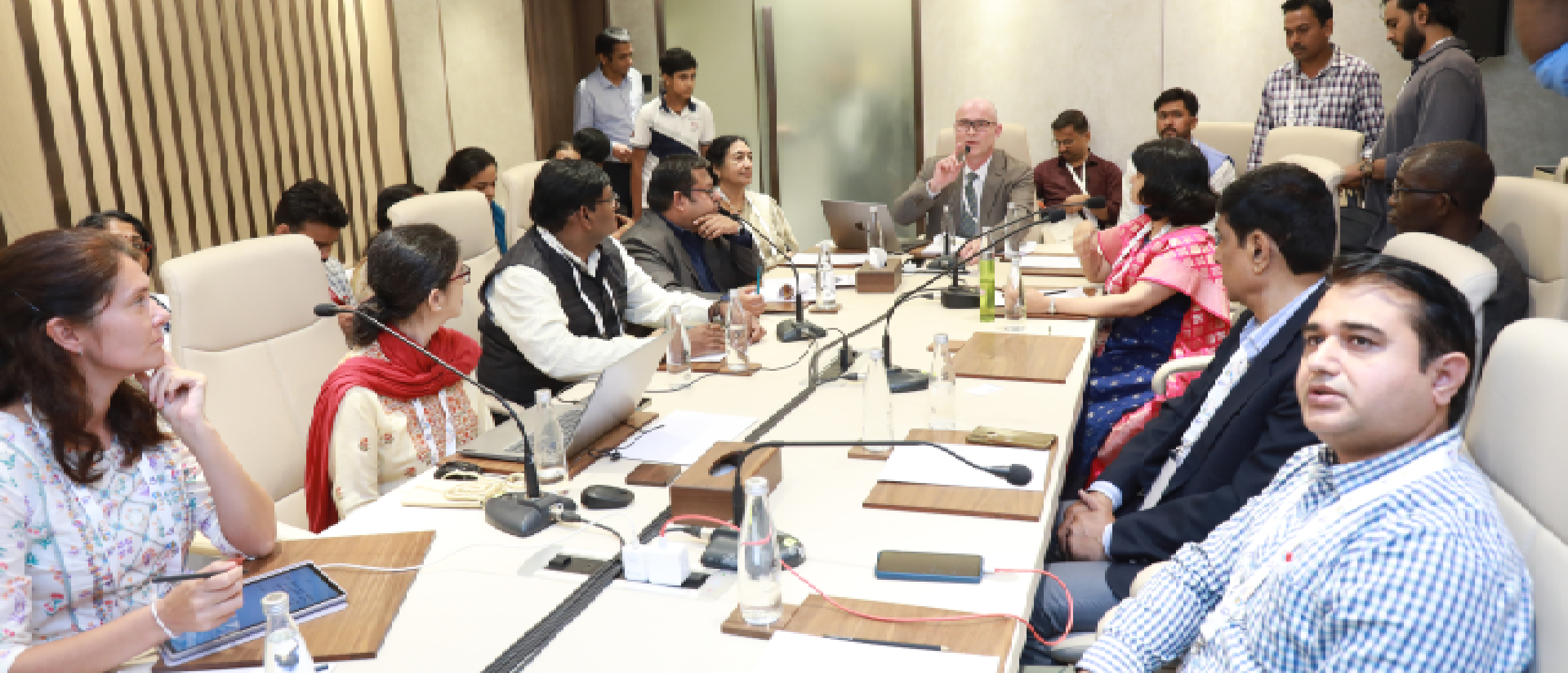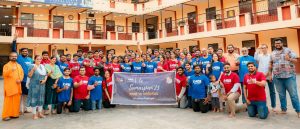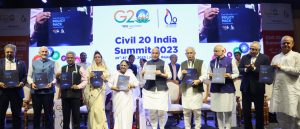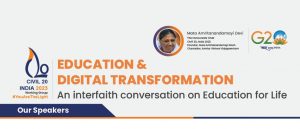Dr. Joost Monks, Executive Director of the Humanitarian Quality Assurance Initiative, Switzerland, moderated the panel discussion on Digital Transformation organized as part of the C20 EDT Summit on 20 May. The discussion focused on accessibility, inclusiveness, and a value-driven approach.
The panelists were Mr. Anirban Sarma, Chair, T20 Task Force; Ms. Marcele Frossard, Policy Advisor for the National Campaign for the Right to Education, Brazil; Andressa Pellanda, General Coordinator, National Campaign for the Right to Education, Brazil; Mr Fernando Botelho, Programme Specialist, Disability Team, UNICEF, USA; Shri. Amandeep Singh Gill, UN Secretary-General’s Envoy on Technology, USA; and Dr. Tarek Rashed, Vice President and Chief Technical Officer of Civilizology LLC, USA.
Mr. Anirban Sarma stated that India’s National Education Policy (NEP) 2020 emphasizes integrating technology with education. However, it is crucial to consider the risks of AI-driven learning, the digital divide, privacy concerns, and age-appropriate content. Equitable access to technology and educational opportunities is essential, and autonomy and privacy are crucial. Educational content should cater to learners’ cognitive and emotional maturity levels. Investing in innovation and education can foster innovation and positive change.
Shri. Ambassador Gill emphasized global engagement, inclusion, and a global commons approach to technology for a greener economy. He advocated for a global commons approach involving global learning, data protection governance, and a value-based digital transformation. Central to his message was the need for collective governance and connecting initiatives outlined in the G7 communique. To achieve these goals, he proposed the implementation of the Global Digital Compact, which aims to promote a human-centric and sensitive approach to technology, ensuring its benefits for future generations.
Mr. Fernando Botelho emphasized cross-sectoral strategies for inclusive environments, focusing on reliable electricity and internet connectivity. He stressed on prioritizing humanity and universal design for technology accessibility. He advocates for government procurement regulations and public funding for high-quality education and incorporating user opinions.
Dr. Tarek Rashed emphasized the importance of engaging civil society, communities, and experts in policy development for diverse perspectives and insights. By incorporating their ideas, policymakers can ensure policies reflect needs and realities, enhancing the likelihood of successful implementation and desired outcomes. Regular communication, collaboration, and practical implementation bridge the gap between formulation and execution.
Ms. Marcele Frossard emphasized the importance of public funding in education to prevent privatization, as it prioritises profit over student well-being and undermines fundamental principles like equitable access, quality learning, and societal development. She advocates for a system prioritising learners’ needs and rights, fostering a more equitable and inclusive society.
The panelists emphasized the importance of digital transformation in three key areas: platforms, identity protection, and age appropriateness. They recommended robust platforms, strong security measures, and tailored digital services for different age groups. Joost prioritised return on investment (ROI) and focused on projects with high potential for financial gains.
